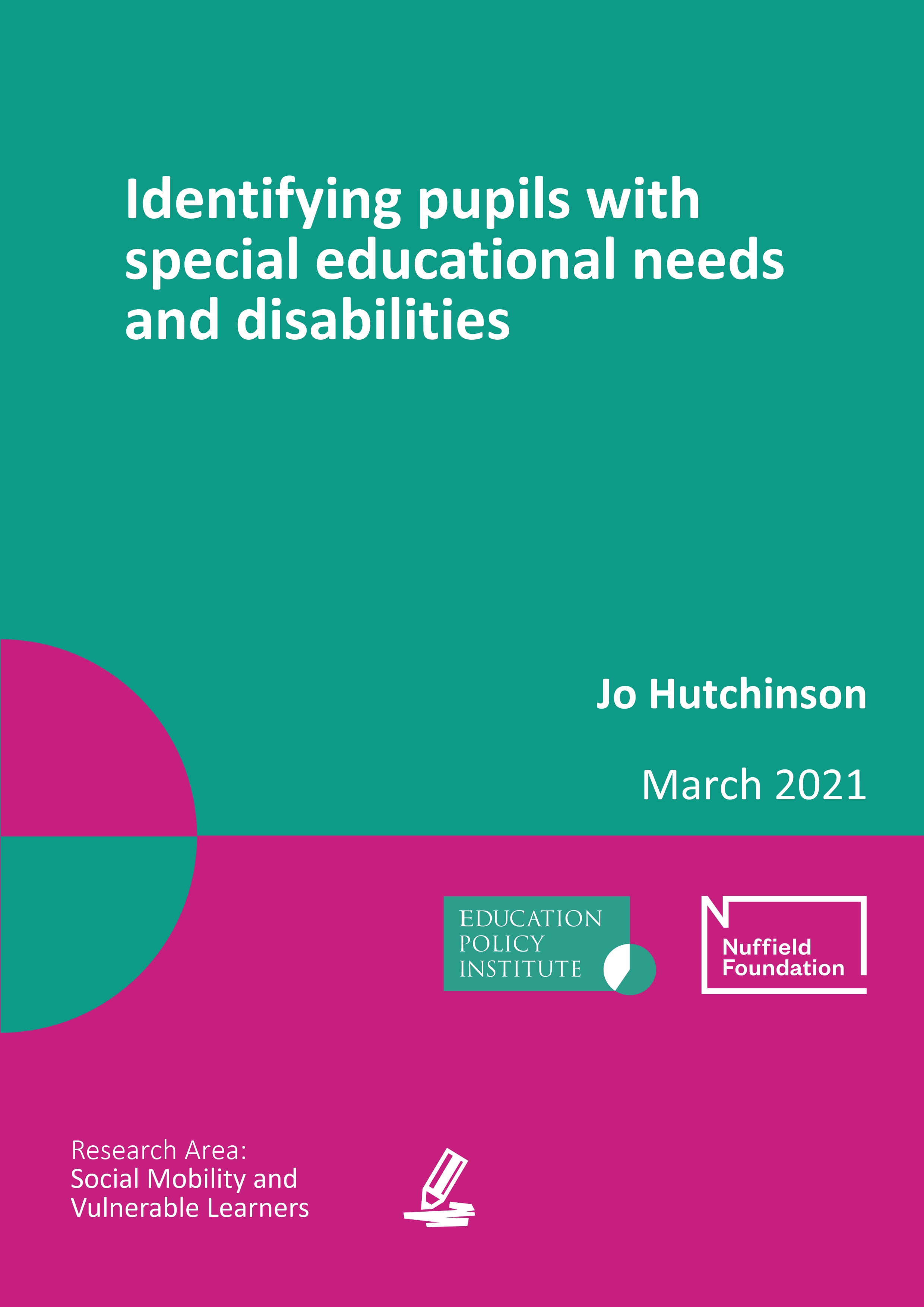A new study from the Education Policy Institute (EPI), funded by the Nuffield Foundation, highlights significant inconsistencies in how children with special educational needs and disabilities (SEND) in England are identified and supported.
The research, which is the first study to fully quantify how SEND support varies nationally, shows that access to support is decided by a “postcode lottery” – with the chances of receiving SEND support from the school or from the local authority largely dictated by the school that a child attends, rather than their individual circumstances.
Over a million children are currently registered as having special educational needs in England – with as many 4 in 10 of all pupils recorded as having SEND at some point during their time at school.
The longitudinal research, which tracks hundreds of thousands of pupils from a single year group through primary school, reveals that the huge variation in SEND support for children can be explained by inconsistent approaches to identifying children.
The findings show that pupils attending academy schools are less likely to be identified with SEND compared to other similar pupils, indicating that pupils’ needs may have been overlooked in these settings.
Children living in the most disadvantaged areas of the country are less likely to be formally recognised as having SEND than similar pupils in more affluent areas, highlighting how there is a “rationing of support” in many areas of high need.
The report also shows that many vulnerable pupils are more likely to be subject to SEND “under-identification”. Those moving schools and those frequently out of school, along with children who have suffered abuse or neglect, are all shown to have a reduced chance of being identified with SEND compared with otherwise similar children.
With the system for supporting SEND highly reliant on regular access to pupils over time, researchers conclude that the pandemic will likely have aggravated existing problems seen in SEND identification, with increasing numbers of more vulnerable children who need support falling under the radar of schools and authorities.
You can download the full report here.
Key findings
There is a postcode lottery for accessing SEND support, with access to specialised provision for children heavily determined by the school they attend, rather than their individual needs
- SEND identification varies widely across England, and when examining what is behind this (at primary school level), differences between schools account for a large majority (two-thirds) of this variation in identification.
- The school that a child attends therefore makes far greater difference to their chances of being identified with SEND than other factors, such as children’s individual learning needs or experiences.
- Findings showing a decisive role for schools are rare in education – typically pupils’ backgrounds and circumstances play a larger role in their outcomes, rather than attending one school as opposed to another.
- There is a fundamental mismatch between how schools and local authorities identify pupils with SEND. Local authorities largely identify SEND consistent with children’s personal, social and emotional development – qualities that are particularly important for later life, such as education and employment outcomes. However, schools appear to focus mostly on communication, language and literacy skills when assessing a child for SEND.
Pupils attending academy schools are less likely to be identified as having SEND
- For children with more severe needs, those living in areas in England with very few academy schools are ten times more likely to be identified with SEND by their local authority than similar children living in areas that have many academy schools.
- At a school level, children attending academy schools are also half as likely to be identified as having SEND by their local authority than those attending other schools.
- Taken together, and after controlling for a range of factors, this shows that these education settings may be overlooking pupils who require SEND support. With data covering the period of two years after schools have become academies, further research on SEND identification in academy schools should be undertaken, to see if these trends persist.
The area that a child lives in can also influence the level of SEND support they receive
- For more severe needs, children from the most disadvantaged local authorities are less likely to be identified with SEND than children of similar backgrounds who live in more affluent areas. Families in poorer areas appear to have more limited support for their children and are likely to be subject to higher thresholds for accessing support.
- Conversely, at a lower, neighbourhood level, children in the most disadvantaged neighbourhoods had substantially higher odds of being identified with SEND. However, significantly, within these poorer neighbourhoods, the most affluent children are most likely to be identified with SEND, indicating that better-off families are relatively more successful at securing support for their children.
Many of the most vulnerable children in society are less likely to access support for SEND
There is strong evidence that the system of identifying and supporting SEND is poorly adapted to the lives of many children – particularly those with less stable lives who do not remain in one education setting or area.
- Children who moved around schools or neighbourhoods at an early stage in their lives are less likely to be identified with SEND than their otherwise similar peers.
- Children who experienced frequent absences from school are less likely to be identified as having SEND, even though children who are already identified with SEND are known to have higher absence rates on average.
- Children who have suffered abuse or neglect (those with child protection plans) also have a reduced chance of being identified with SEND compared with otherwise similar children and securing support for any additional learning needs.
Policy recommendations
The system for identifying and supporting pupils with SEND requires a number of careful reforms to improve consistency, accessibility, accountability and resource allocation, including:
- Improvements in assessing SEND within schools
- Increased specialist training and support for teachers and school leaders
- A national framework setting out minimum standards of support for children with SEND in mainstream schools
- A greater focus in primary schools on the role of children’s personal, social and emotional development
- Concerted efforts from authorities to reaching highly vulnerable children who require specialised learning support, who may be less visible in the system.
- A SEND funding system that is far more responsive to pupils’ needs.
The full set of policy recommendations can be read in full in the report on p.11.
This report is funded by the Nuffield Foundation. The Nuffield Foundation is an independent charitable trust with a mission to advance social wellbeing. It funds research that informs social policy, primarily in Education, Welfare, and Justice. It also funds student programmes that provide opportunities for young people to develop skills in quantitative and scientific methods. The Nuffield Foundation is the founder and co-funder of the Nuffield Council on Bioethics and the Ada Lovelace Institute. The Foundation has funded this project, but the views expressed are those of the authors and not necessarily the Foundation.



